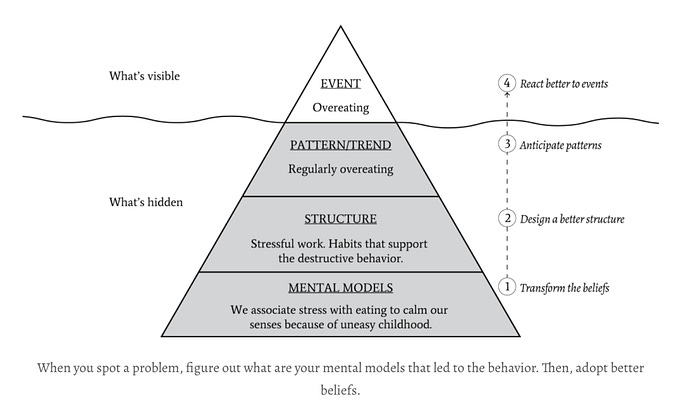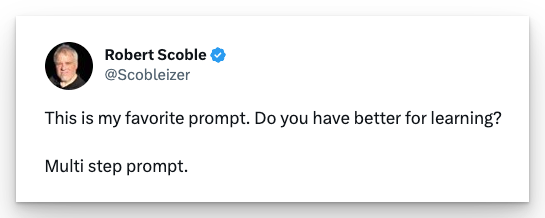🎾 Systems Thinking Tools, Power Myths, Stellar Strategy Decks, PM Time Management & Google’s AI Course
+ AI prompt
Estimated read time: 1 minute 33 seconds.
This is Sunday 1-1-2-3 with George.
Welcome to the 81st edition.
Today we have:
Systems Thinking Tools & Techniques
Think You Know Power? Stanford's Jeff Pfeffer Might Change Your Mind
The Secret to Stellar Strategy Decks: Insights From an Analysis of 100 Game-Changing Strategy Decks
These Advanced Time Management Principles Will Elevate Your Product Management Game
Google's Generative AI Course Is A Game-Changer
+ AI prompt.
📚 Systems Thinking Tools & Techniques
Getting a grip on product management can feel like wrestling with an octopus, particularly when it comes to system thinking tools.
The post presents two important tools: the Iceberg Model and Feedback Loops.
The Iceberg Model is a systems thinking tool that helps understand underlying causes of events or opportunities. It consists of 4 levels:
Event
Pattern
Structure
Mental Model.
There’s an example where the Iceberg Model is used to analyze and rectify frequent misunderstandings about product priorities between product managers and senior stakeholders. Don’t we all want that?
Feedback Loops are the other tool, connecting an action with a subsequent reaction or consequence. There are 2 types of feedback loops:
Balancing Feedback Loop
Reinforcing Feedback Loop.
Read more here:
👀 Think You Know Power? Stanford's Jeff Pfeffer Might Change Your Mind
I’ve shared my list of 7 Must-Read Books to Help You Navigate Complex Office Politics & Unlock the Secrets of Stakeholder Management. One of them that was new for me was Power.
This video dives into the concepts from the book, if you don’t want to read.
Some really crucial ideas to learn if you want to influence in the organisation:
🍪 Quick Bites
The Secret to Stellar Strategy Decks: Insights From an Analysis of 100 Game-Changing Strategy Decks
These Advanced Time Management Principles Will Elevate Your Product Management Game
🤖 AI Corner
Prompt
1. Ask it to tell you all points of view on something or someone or anything. Photography, for instance.
2. Ask it to create a persona for each point.
3. Tell it to gather the persona’s all together into a group. Could be a debate club, a panel, a board of directors, or whatever you want.
4. Ask the group to debate the topic. Or anything but you will have a specific group around a committee.“A contextual committee.”
(h/t Robert Scoble)
That's a wrap for today. Stay focused and see you next week! If you want more, be sure to follow me on Twitter (@nurijanian)
😀 What did you think of this week's newsletter?
Loved it | Great | Good | Meh | Bad
If you enjoyed this, please consider sharing it with a friend. If a friend sent you this, get the next newsletter by signing up below.
Who's George?
I’m an underdog product manager.
Product management in New Zealand (where I live) is still a relatively immature discipline. I also came into it late via data science and UX. I may be older than others, but I often feel like a rookie.
To become better at my craft, I learn and explore new ideas relentlessly.
Then I share high-quality, tried-and-true ideas that can be used right away.
How I can help you:
If you want to feel smarter, I’ve compiled my best actionable finds in prodmgmt.world.
If you need to figure out prioritization in your role, get The Big Book of Prioritization.
See you next week.
— George.




